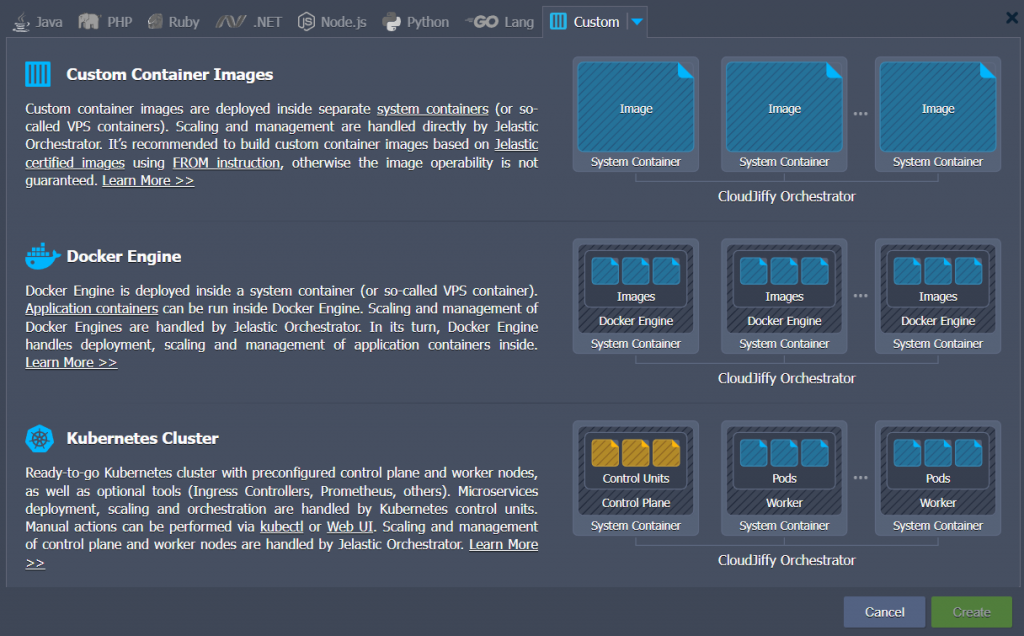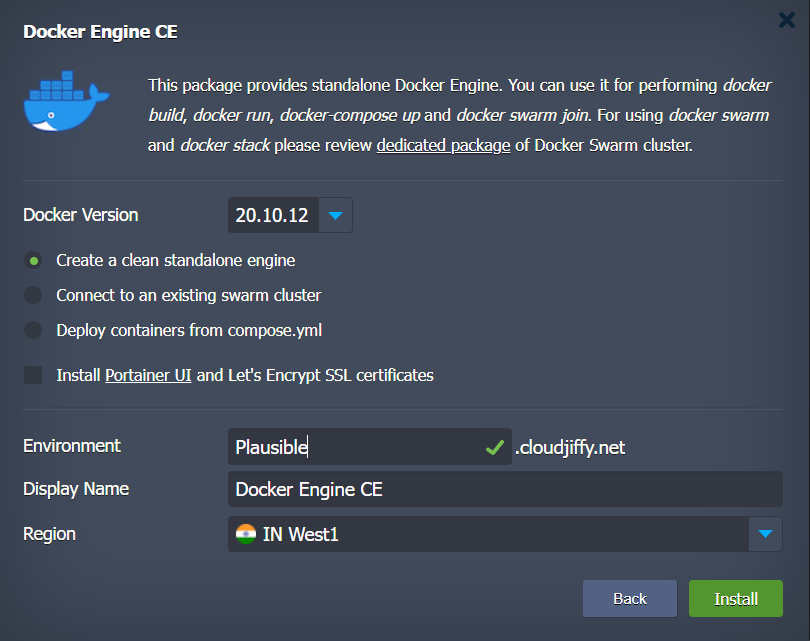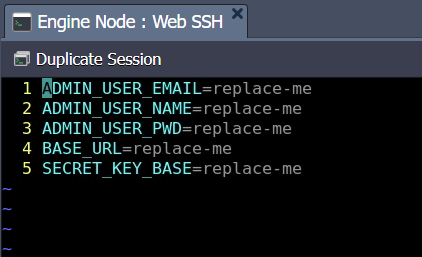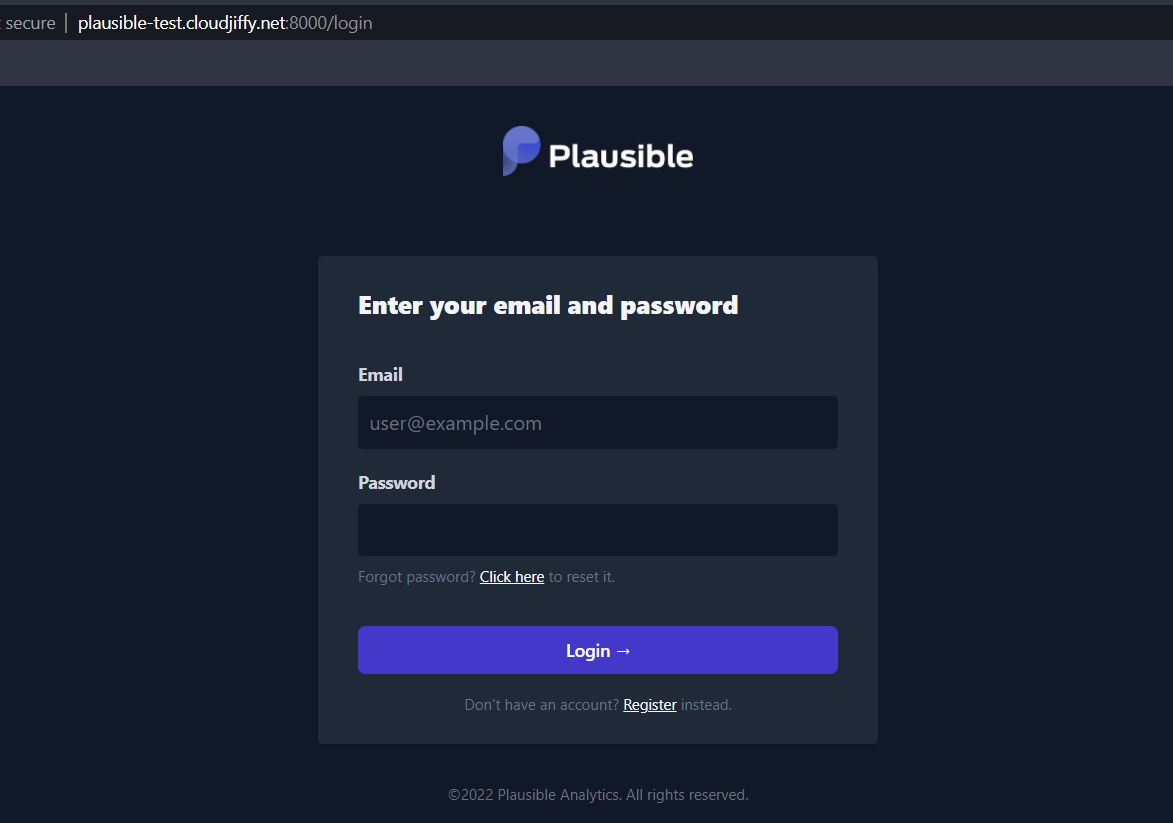Plausible: Self-Hosted Google Analytics alternative
Plausible Analytics is a 100% open source web analytics tool. They aim to reduce corporate surveillance by making a useful and privacy-friendly website analytics tool that doesn’t come from the adtech world.
Plausible provides you with actionable data to help you learn and improve, while the visitor keeps having a nice and enjoyable experience. Cookies are not used and no personal data is collected. There’s no cross-site or cross-device tracking either.

Let us show you how simple it is to get your Plausible Analytics on Cloudjiffy PaaS.
But first, Why use it on CloudJiffy?
- Easy to manage
- One-Click Installation
- Charges based purely on consumption (Pay As You Consume pricing) Thus helps you save cost
- Real-time scaling with an increase in users
- Data replication and backup solution to keep your data safe.
- Highly secure infrastructure
- Inbuilt CDN to cater to a worldwide audience
How to deploy Plausible Analytics on CloudJiffy?
- Click on ‘New Environment’ and choose Docker Engine.

- Choose ‘Create a clean standalone engine’ and give your environment a name and click Install.

- Once the environment is created, Take SSH of the environment and download Plausible from their Github.
$ git clone https://github.com/plausible/hosting
$ cd hosting


- The configuration file,
plausible-conf.env, has placeholders for the required parameters. To set the parameters you’ll first need a random 64-character secret key which will be used to secure the app.$ openssl rand -base64 64 | tr -d ‘\n’ ; echo
- Edit
plausible-conf.envand setSECRET_KEY_BASEto your secret key. Set yourADMIN_USERcredentials to your own choices and enter theBASE_URLfor your app. It should be the base URL where this instance is accessible, including the scheme (eg.http://orhttps://), the domain name, and optionally a port. If no port is specified the default8000will be used. Plausible is not currently designed for subfolder installations so please do not add a path component to the base URL.
- Once you’ve entered your secret key base, base url and admin credentials, you’re ready to start up the server.
$ docker-compose up -d

- When you run the above command for the first time, it does the following:
- Creates a Postgres database for user data
- Creates a Clickhouse database for stats
- Runs migrations on both databases to prepare the schema
- Creates an admin account (which is just a normal account with a generous 100 years of free trial)
- Starts the server on port 8000
You can now navigate to
http://{hostname}:8000and see the login screen.
- When you first log in with your admin credentials, you will be prompted to enter a verification code which has been sent to your email. Please configure your server for SMTP to receive this email. Here are Plausible’s SMTP configuration options. Otherwise, run this command to verify all users in the database
$ docker-compose up -d
- Plausible is updated regularly, but it is up to you to apply these updates on your server. By virtue of using Docker, these updates are safe and easy to apply.
$ docker-compose down –remove-orphans
$ docker-compose pull plausible
$ docker-compose up -d
You are all set!
CloudJiffy provides 14days free trial. Visit https://cloudjiffy.com and click on Free Signup for a free 14 days trial.
Happy Hosting!







